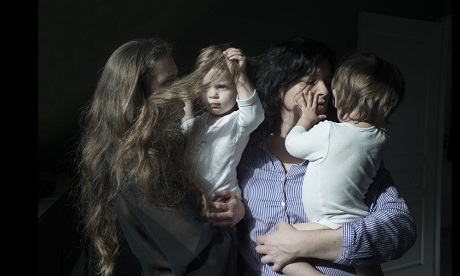Proposals to offer fertility treatment to lesbian couples and single women would harm society by removing fatherhood from the lives of children say French bishops.
France’s highest bioethics body, the National Consultative Ethics Committee (CCNE), sees the issue differently.
Under the current law, technologies such as in vitro fertilisation (IVF) and artificial insemination are restricted to heterosexual couples, and surrogacy is illegal.
President Emmanuel Macron has promised to change this law.
French media say a bill is likely to be introduced in Parliament in 2019.
In a document by Archbishop Pierre d’Ornellas (who is the head of a working group on bioethics of the French bishops’ conference) signed by all French bishops, the bishops outline their concerns.
They say their purpose in intervening in the proposed law change is because they wished to offer an ethical perspective on the forthcoming debates, based on reason and in the spirit of dialogue.
The bishops predict liberalising the law would lead to the social acceptance of surrogacy, the rise of eugenics and the notion that children were commodities to please adults.
Furthermore, if the law were changed, society would be harmed because the treatment would enable fatherhood to be removed from the lives of children.
The CCNE, however, says “artificial insemination should be available to all women” regardless of relationship status or sexual orientation, reasoning that the inability to have children constituted a real “hardship.”
However, it still upholds France’s current policy on surrogacy, ruling that the practice is unethical no matter the “motivation,” medical or otherwise.
According to a recent study for La Croix newspaper, 60 percent of French people support expanding the law to include single women and lesbian couples, as opposed to just 24 percent in 1990.
Source
